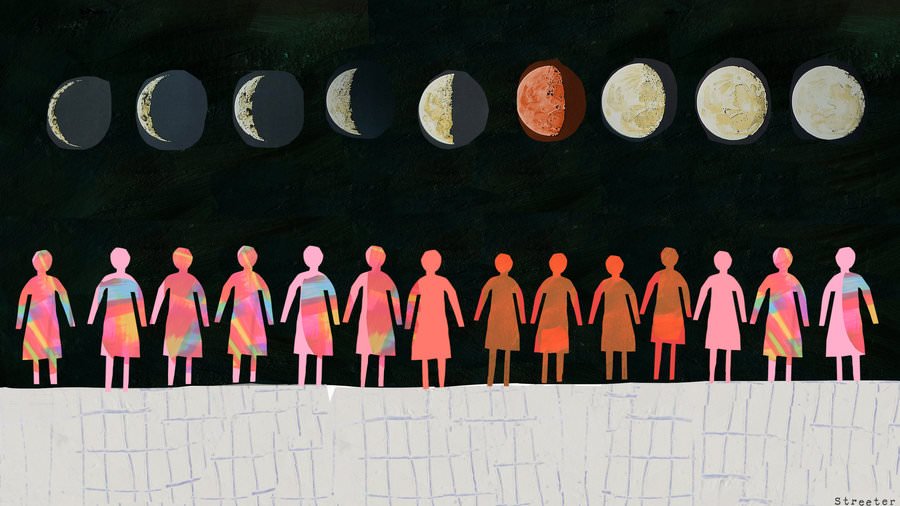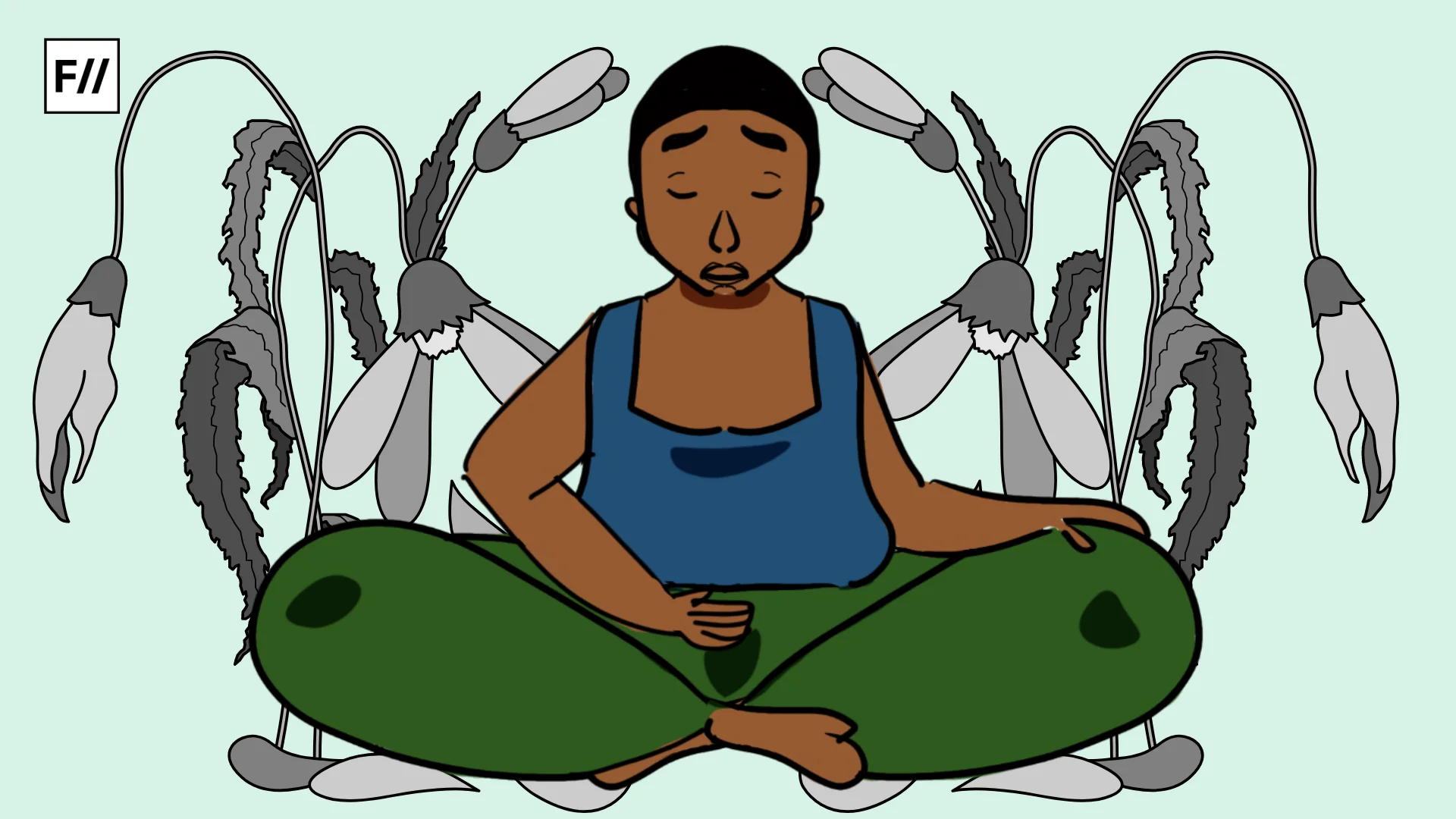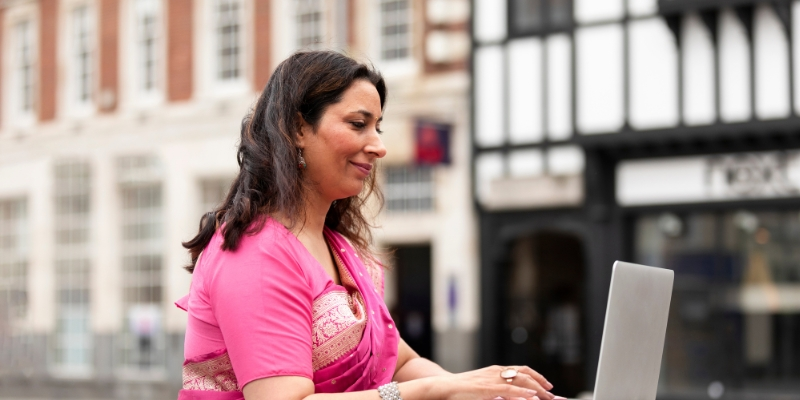There are some conversations that are harder to have than others. They just are.
When I set out to do my Masters’ thesis on the ways in which urban middle class women experience menstruation, I was blissfully (some may call it naively) ignorant of this tiny detail. Armed with a notebook and a recorder, I set out into the city to ask a host of women very personal questions on how they survived their period. How did they talk about it? What did they think about it? How did they remember it? What was their favourite period story? When did they first get it? In the course of the next twenty-two conversations, I spoke Period. And eventually, once we got past the “You are studying this?” and “Why are we talking about this of all things?”, they spoke it too.
Over the course of my interviews, there were two unusual similarities across the majority of my interviews. Sample this. (Most) women are more comfortable talking about their period when they are surrounded yet alone, in public yet isolated spaces, where they can be overheard but not eavesdropped or judged. They loved cafes and restaurants, where conversation possibly could not get “too personal” or “delve too deep.”
Also Read: The Tradition Behind Menstrual Taboos
Of the few who met me at home, everyone made sure to announce the off-limits-ness of the room we were in, one of the women even going the whole hog and chasing her husband and children out to “fill petrol in the car, it is only 9 PM!” I vaguely remember the rouse including ice-cream, but I cannot be sure. We want to speak and be heard, but just not by “people”.
women subconsciously distanced themselves from their uterine linings. I am not my period, thank goodness for that.
Secondly, women speak of their periods in passive voice, as removed from themselves. The period is the actor, we are the actant. It happens to us, we deal with it. It comes, it is gotten, it is a state that you go through or something that happens to you (not an action that you do). More often than not, women subconsciously distanced themselves from their uterine linings. I am not my period, and thank goodness for that.
“[When I first got my period] I went and told my mom and she said “Aiyyo, super! You’ve got it. Very well timed. (It is) Adi 18 (the day of the Hindu Tamil monsoon festival). Congratulations.” So Adi 18 is when it all happened. It’s so easy to remember a thing when it happens on Adi 18, when there is an occasion.”
These were not even the most interesting similarities in my books. All women (bar one, maybe) remembered exactly when they got their period. Not necessarily the date, mind you, but what they were wearing, what they were doing, what they did first, who they spoke to, every detail about the way the day unfolded. (Take a minute to think about it. You do too, don’t you?)
“I got it when I was in 6th standard. It was a Wednesday. I don’t remember the date though. I had to wear white uniform to school and I had to do the prayer that day in front of the whole school.”
“I was just happily painting my nails sitting in the balcony. I didn’t feel anything. I didn’t know I had started chumming. Just when I went to have my bath, I realised. For a minute, I was like just, “Okay, today is the day”, and then of course, I told my mum and she told my dad and my extended family, my grandma and my aunt.”
“So the first time I got it, it was just, like, I woke up and my pants were stained. I still remember, it was, a pink pant, and I was, like, “Oh, it’s stained! Oh, yay!” It was just a very brief thing; and then, about four–five months later only, my periods started coming. And they were not very regular…”
Your period is a memory-marker, influencing everything from your schedule to your wardrobe.
Then there is the other thing. Everyone has a favourite period story, or two, or you know…an anthology. There were multiple times in interviews that I would ask this question and sit back for a breather. For the next forty minutes, I’d be regaled with stories of stained clothes, tortured exams, “that one girl” who always forgot her pad, seeking or giving help.
There were so very many period related memories, all of which were in vivid detail. No matter how old they were, you remembered your most embarrassing period moment. Your period, it seemed, was a memory-marker, influencing the way you understood everything from the calendar month (to travel or not?) to your wardrobe (dark colours, extra scarf). It defined the way you mapped out your everyday.
“This one time when I was travelling home, and I was in the bus and I was just feeling like the world was bleeding. (laughter) I think it was my second day and I was out of pads. And I had to get home. It was bad because I was sitting. I was wearing a checked kind of a creamish, beige-ish shirt…”
“[Pain] has always been there. That one day, I generally take it as a positive thing that I take a break that day. Whatever it is. I also don’t plan travels that day.”
“I am just a little careful about what I wear during those days especially if I am out for extended periods of time. (I) make sure that it is either dark or at least that I am wearing two layers like a pant and a long shirt or whatever. Because I don’t know, I may not have the chance to change my pad.”
yes, we need men to join the conversation to break stigma, but on a day when our insides feel like they’re ripping apart, everyone needs their girls.
The twenty-two conversations I had soon translated to an almost-ninety-page thesis. But more importantly, the twenty-two conversations taught me deep lessons on the way women understand their own experiences.
Feminist lens and academic jargon aside, the one thing those twenty-two women taught me was surprising in its simplicity – yes, we need men to join the conversation and break the stigma, but on a day when we feel like our insides are being ripped apart, everyone needed their girls. The period is naturally associated with a sisterhood, a shared sense of community, a bond between women rooted in such deeply “normal” actions like “borrowing” a pad or checking for stains.
One woman even spoke of how the only grouse she had against the tampon was this excommunication from the camaraderie. “No one asks for a tampon,” she complained. “They only want pads. I don’t feel a part of the community anymore.”
On a bad day, a pad day, a bloody awful day (pun entirely intended), who is on your speed-dial? More often than not, I’d bet it’s one of your girls.
“Recently I travelled for this conference and I was fine throughout the journey but when I reached the venue, I realised I was menstruating and everyone is a stranger. So I walked up to this lady who was the only friendly face that I could see and I said “You know what, I am bleeding”. Then she sent another girl to the pharmacy and bought me sanitary napkins and didn’t even take money from me. I felt that was so sweet.”
“With tampons, I felt like I lost out on the sense of community. You know how smokers when they go, they borrow cigarettes? Like that, I always used to have that pad if someone asks me if I have one. I felt like I lost out on that community thing? I still carry a tampon (though I have switched to the menstrual cup), I don’t know why. In case someone asks me. When someone asks if I have a pad and I say I have a tampon, it usually doesn’t work though.”
Also Read: Know Your Alternative Menstrual Products | #ThePadEffect
As for me? A year ago, I spoke with twenty-two stranger women about their period and called it my Masters’ thesis. In the process, I spoke about mine twenty-two times. I wrote about it for non-academic platforms and had conversations with people who did or did not care. Over time, I stuttered less and joked more.
A year ago, I spoke about my period for over forty hours and called in my Masters’ thesis. I learnt to shed my own inhibitions, let go of internalised stigma no matter how deep, and not just participate in but seek out conversation on the subject. Today, I am the girl who gets tagged in every period meme or joke on the internet. And I’d like to think twenty-three of us in the world are slightly more comfortable talking Period. That is a start, isn’t it?
Featured Image Credit: Katherine Streeter for NPR
About the author(s)
Yashasvini Rajeshwar is a writer with a tendency for narrative non-fiction, prosaic poetry, and the occasional journalistic endeavour. When she is not pounding away at her laptop attempting to "create," she teaches full-time at a rural school in Tamil Nadu.




